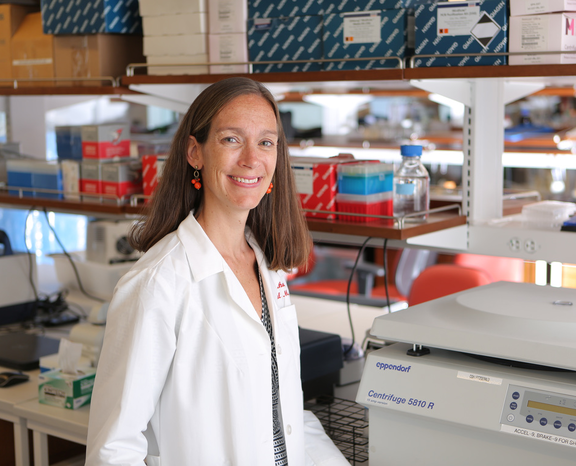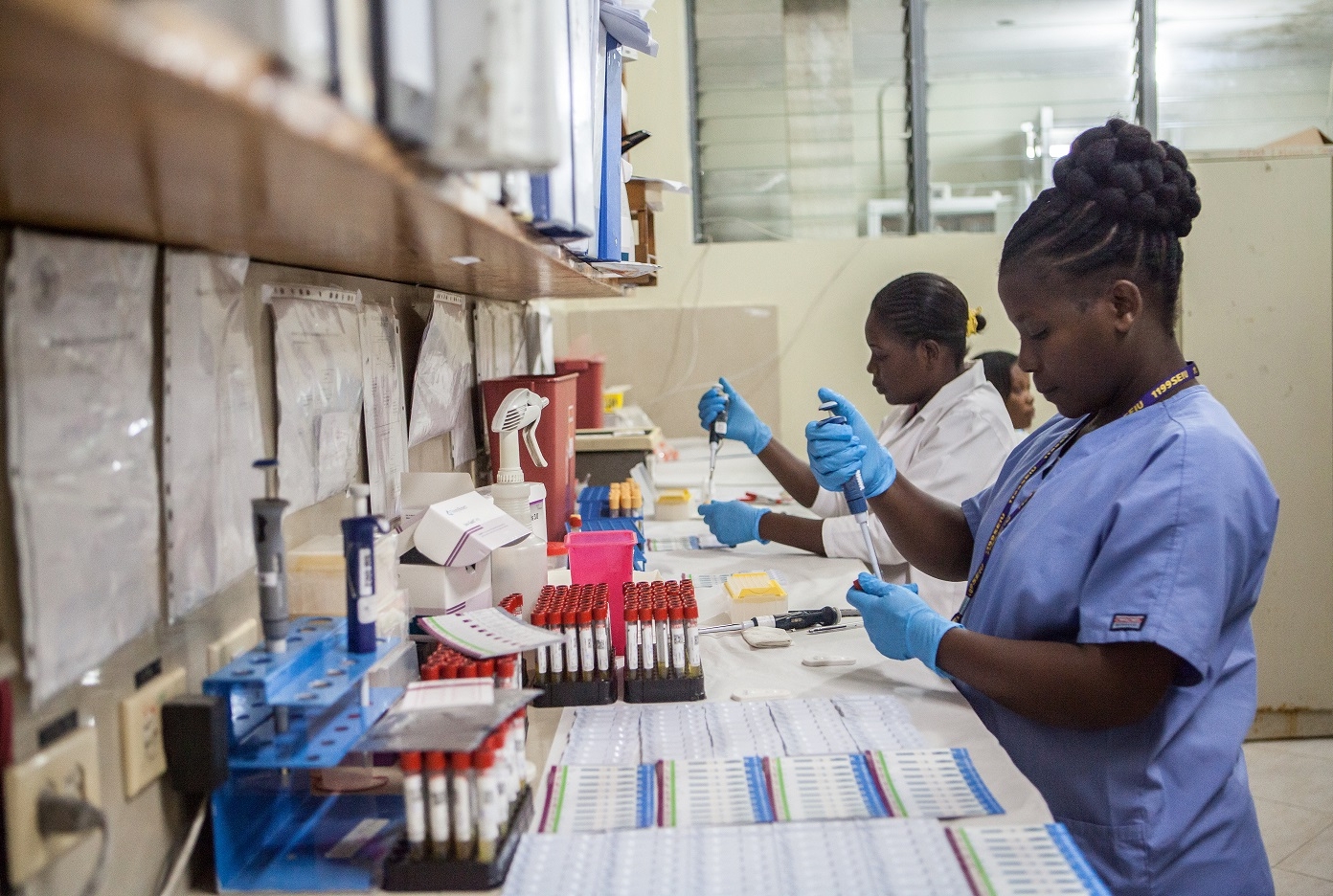
Dr. Jennifer Downs. Photo credit: John Abbott
Despite comprising up to 80 percent of global health faculty members and workers, women hold only a fraction of global health leadership roles – a disparity stemming mainly from gender-based challenges in work-life balance, gender discrimination, and sexual harassment or assault, according to a research report by researchers at Weill Cornell Medicine’s Center for Global Health.
The paper, published Feb. 9 in The Lancet’s special issue on women in science, medicine and global health, also outlined practical steps to protect and promote women working in the field of global health.
“There is good data that women leaders lead differently than men,” said co-author Dr. Jennifer Downs, the Friedman Family Research Scholar in Pediatric Infectious Diseases and an associate professor of medicine at Weill Cornell Medicine. “They tend to prioritize health, particularly of women and children – and that is better for entire societies. We are striving for parity in gender leadership in global health because then global health outcomes can be better for all people.”
The investigators surveyed nearly 350 women from Weill Cornell Medicine and three affiliated international centers – including those in Haiti, Tanzania and India – who were working or had worked in low- or middle-income countries in health-related careers. Participants were asked to consider their experiences from all stages of their training, including at previous institutions. The researchers also conducted in-depth interviews and focus groups to collect data on three gender-based challenges, including work-life balance, gender discrimination, and sexual harassment or assault.
While 84 percent of respondents reported experiencing at least one of these overall challenges, 78 percent pointed to work-life balance, 53 percent reported gender discrimination, and 55 percent said they’d encountered sexual harassment or assault.
Overall, the major themes included fear, futility and resignation, the paper noted. Women expressed “resigned acceptance” about handling work and all household responsibilities, while many declined leadership opportunities such as promotions and committee chair positions due to family obligations.
Health problems specific to women, including maternal mortality, would be far better addressed “if women were more frequently in charge of ministries of health, hospitals and public health systems,” said co-author Dr. Daniel Fitzgerald, director of the Center for Global Health and a professor of medicine at Weill Cornell Medicine.
“What wasn’t surprising was the percentage of challenges women are facing,” he said. “But I was surprised by the similarities between sites, that these are universal challenges. It’s not isolated to one country – it’s a global problem.”
The new research builds on established efforts by Weill Cornell Medicine to advance global health, which include more than 20 programs spanning six continents.

Drs. Jyoti Mathad and Daniel Fitzgerald. Photo credit: John Abbott
“Transitioning from fellowship to faculty is difficult in any field, but global health poses special challenges to women,” said co-author Dr. Jyoti Mathad, an assistant professor of medicine and of medicine in obstetrics and gynecology, who with Dr. Downs in 2015 established the Center’s Women in Global Health Research Initiative. The initiative seeks to address challenges women face working internationally by developing practical strategies to address them.
“You need female mentors to help you balance family demands with constant travel and to find your way in traditionally male-dominated environments,” Dr. Mathad said. “But there are so few women to turn to.”
Study participants identified potential solutions to the myriad challenges, including promoting gender equality in the workplace; implementing formal policies on gender discrimination and harassment; and offering individual, gender-specific leadership training. Other tactics could include flexible working arrangements to help women improve work-life balance.
“To improve life in the developing world,” Dr. Mathad said, “we must correct the gender imbalance: Stop sexual assault in healthcare facilities, get serious about gender discrimination with appropriate repercussions; and give women the tools they need to be great doctors to their patients and great mothers to their children.”
Dr. Fitzgerald praised the leadership at the four institutions partnering in the research, which also include the Haitian Group for the Study of Kaposi’s Sarcoma and Opportunistic Infections (GHESKIO) in Haiti, Weill Bugando School of Medicine at the Catholic University of Health and Allied Sciences in Tanzania, and Byramjee Jeejeebhoy Government Medical College in India.
“I think it’s courageous and bold of them to decide to look at the data, get the facts, and address this problem,” he said. “I’m proud Weill Cornell has said they’re going to analyze this and really try to fix the problem.”
This study was supported by the National Institutes of Health, National Institute of Allergy and Infectious Diseases (K23AI129854, K23AI110238 and K24AI098627) and the Fogarty International Center (D43TW009606).

